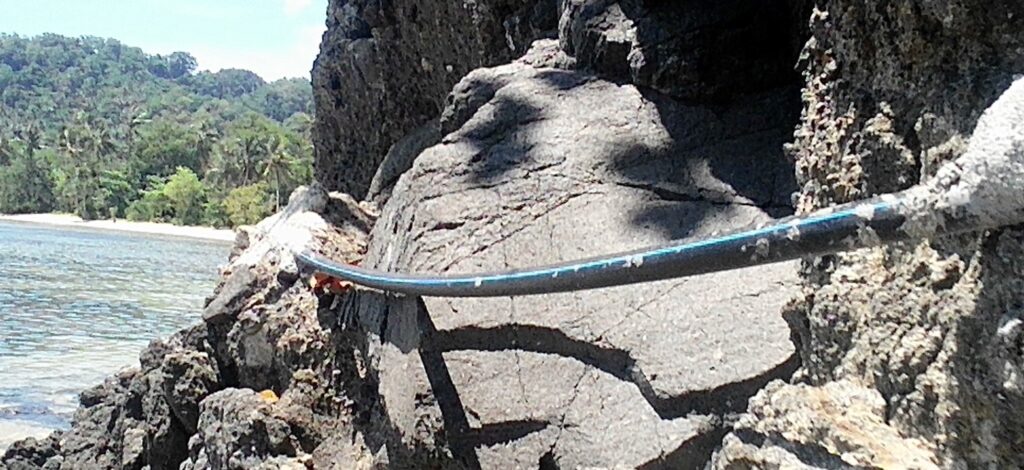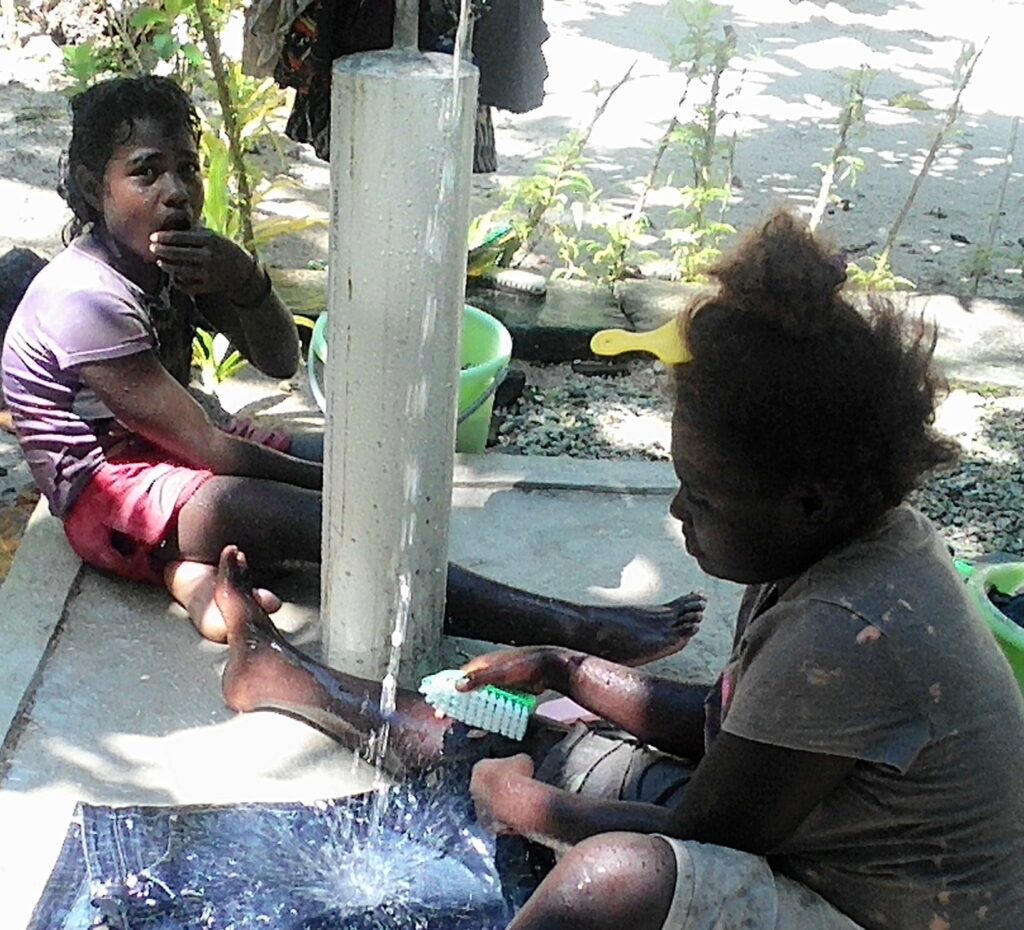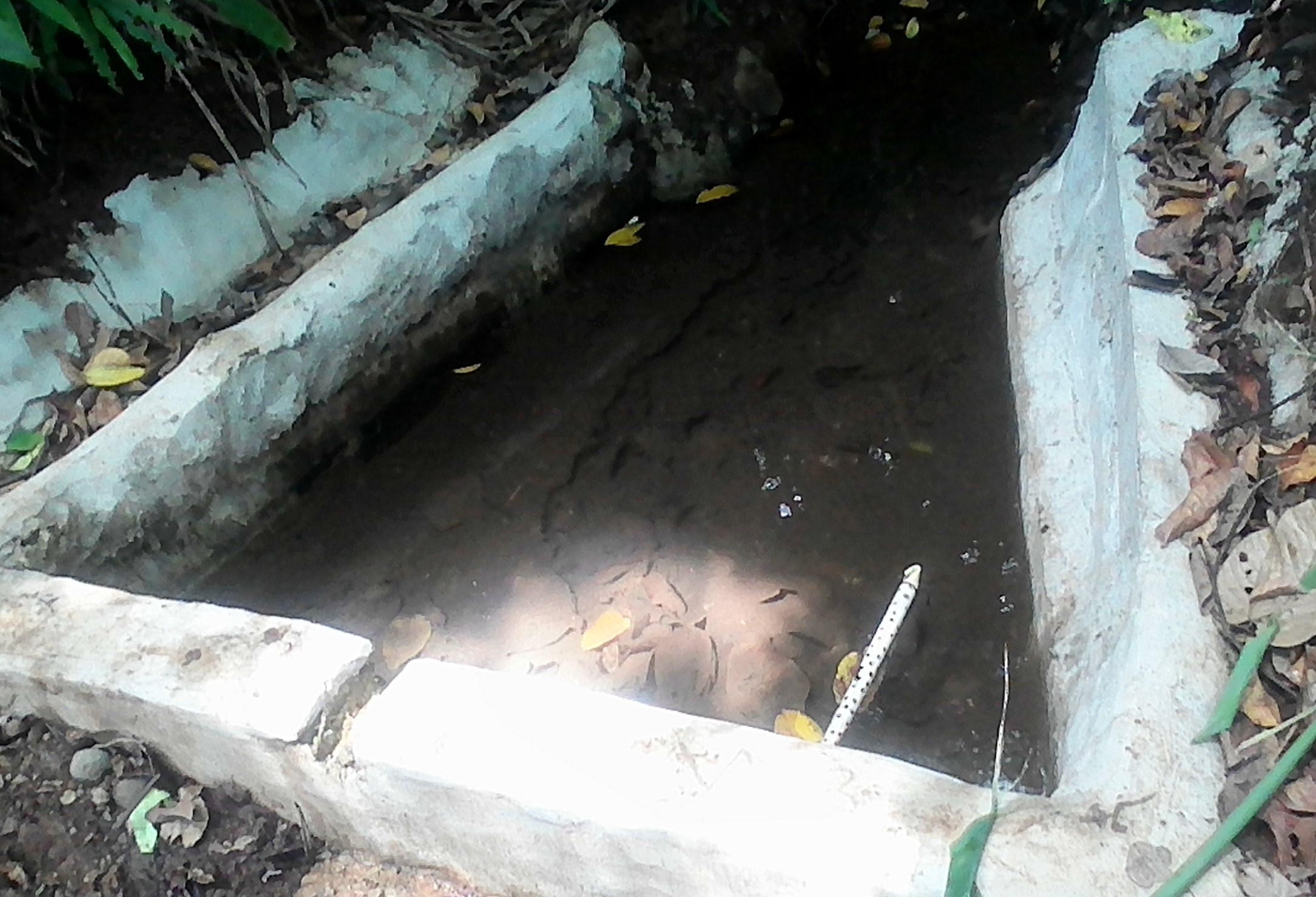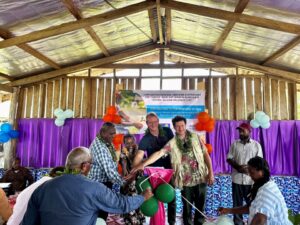BY MAINE LIVETT
FREELANCE REPORTER IN GIZO
FAMILIES in New Mandra, a shoreline village on the eastern side of Gizo Western Province, use unsafe water for drinking when their tanks run out of water during long periods without enough rain.
Elder Tekea Aitaua revealed, when they experienced a shortage of drinking water from the tanks, they have no choice but to drink from a water supply, constructed by Rural Water Sanitation and Hygiene (RWASH), meant only for cooking, washing, bath and other general use.
He pointed out his community is facing ongoing environmental health issues, in terms of accessing clean and safe groundwater supply. When asked if they boiled the water before drinking, he said they also drink straight from the standpipe. And that their younger ones are the most vulnerable.
Aitaua raised the concern that the fishing village of about eight families is part of a bigger community of New Mandra further southeast of Gizo Town. They’re facing the challenge for many years, and he’s calling for authorities to consider their plight again.

Their water supply piped from an open catchment dam, situated on a natural pitch about less than fifty meters away, from residents of Gizo town’s growing urban populace.
He said, his community needs more tanks to catch enough rainwater for drinking, and that would serve them long enough.
“We are drinking rubbish, Elder Aitaua said. “there are houses on top and the water source is situated underneath, and when there’s rain will carry rubbish such as diapers into the water source. “And also, a dead dog was once dumped there.” He added.
Mr. Aitaua, questioned why funding for the project was not enough to buy materials to improve the source dam, as an open dam is not safe. People are living near the source, and some of them are using the first tap from the source dam for bath and washing, as well as there are footpaths on opposite slopes adjacent to the water source.
He said, they sealed their storage tank’s opening for safety purposes, but someone broke it open, and that action he pointed out also put them in uncertainty with the usage of the water.
“For me, we can find another source, but they must cover the dam where the water comes from, cement it that no one can break it. Now we use the water but we are not sure of it, and lucky we have tanks,” He said.
Senior Health Inspector in Gizo John Sele said, “for the safety of having quality water supply you have to test it. Every new system in the community, as long as the government implements it, especially WASH program in the Ministry of Health and Medical Services, you have to test it to prove that water has quality.
One of the strategies in the Ministry of Health is, every water has to be quality, he added.

The Health Inspector confirmed that the water source is not safe for drinking, but only for cooking, washing and bath.
He said responsible government program deals with water issue RWASH, under Gizo Hospital. And it depends on the local health department’s program, under health services.
He said if the water is clean but people are living at the source, that water is not safe.
He also stated, that “all projects in Gizo and water around the Western province has data. This enables responsible water authorities to enhance ways, to see how many projects made and how they can be monitored based on the data collected.”
According to World Vision, clean water is essential for the prevention of waterborne illnesses such as diarrhea, cholera, and dysentery. Waterborne diseases are usually caused when a person drinks, bathes in, washes with, or prepare food with water that has been contaminated by bacteria, viruses or parasites, usually from human or animal waste. “with unsafe water, there is a serious concern for children, especially those under the age of three.”
A reliable source from the local Environmental Health department in Gizo mentioned a recent outbreak of cases of diarrhea caused by Rotavirus, recorded in Gizo Hospital.
However, the source said the department cannot provide official data to the media, since the government is working under COVID 19 state of emergency.
According to studies, Rotavirus causes severe watery diarrhea and vomiting in infants and youngsters less than two years old and is highly infectious. It can also cause other intestinal symptoms.
Another study stated that “children are most likely to get rotavirus between November and May, depending on the part of the country in which they reside.”




